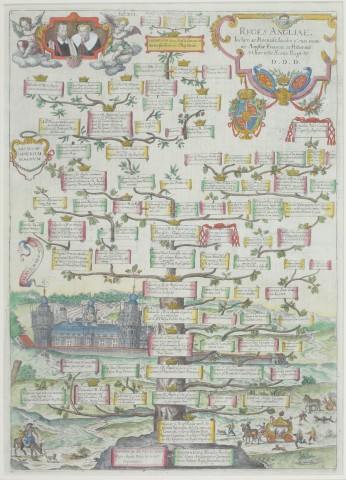
When learning Turkish, “family” is one of the topics you need to be able to talk about because in all areas of life, you will be frequently hearing about family.
“I was late because I had to take my daughter to school this morning.” “I am unhappy because my in-laws will be staying with us all summer long.” “My brother is the problem child.” “The relatives of the old woman are waiting for her to die to get the inheritance.” “My cousin is an idiot.” Do any of these sentences sound familiar in terms of context? Most probably yes! These are some sentences you may hear from a colleague, a friend, a family member etc. in your daily life.
You will not only hear about family, but you will also have to talk about it and need family vocabulary because “family” is always a good conversation starter.
In this article, first of all, the Turkish family structure, which will create a communication ground for you, will be mentioned, and then the vocabulary related to family and idioms and proverbs that involve family in Turkish will be explained.

 Table of Contents
Table of Contents
- Family Life in Turkey
- General Vocabulary for Family in Turkish
- Turkish Vocabulary for Family Members Who are Related by Blood
- Turkish Vocabulary for Family Members Who are not Related by Blood
- Questions and Answers about Family
- Idioms and Proverbs about family and family members
- All About the Turkish Language and the Culture
1. Family Life in Turkey
Turkish culture is family oriented. Family ties are really strong in Turkey. Although there have been changes in the culture regarding family life, certain things such as family support, family members living close to one another, coming together for holidays and the respect for the elderly remained unchanged.
It’s common that single grown-up children no matter at what age they are continue to live with their parents. This has recently started to change in urban areas, though. Also, some nuclear families live with grandparents. In general, patriarchal culture is dominant. Let’s see what other features a typical Turkish family has.
A- Marriage
Marriage age, type, and related traditions between urban and rural areas often differ. Let’s see what kind of differences exist in Turkish marriage and family life in different parts of Turkey:
- In rural areas
Families in Turkey usually expect their children to get married and have kids. In rural areas, people, especially women get married at early ages. Arranged marriages are more common in rural areas.
Weddings are more traditional in the backlands.
- In urban areas
Arranged marriages exist in urban areas, too. However, modern Turkish families in urban areas are more supportive of dating. Arranged marriages are getting less and less in bigger cities every day. On the other hand, unfortunately the divorce rate is getting higher.
Average age of marriage in bigger cities is higher than that of the rural areas.
B- Family structure
Rural areas have different family structures than urban regions. Some differences will be highlighted below.
- In rural areas
In rural areas, usually extended families live all together. Children are important in Turkish families. However, especially in rural areas there is usually a preference for boys over girls. Although this inclination does not often affect the way they are raised and their family’s expectations of them, in rural places, girls are usually raised to be more passive and boys are encouraged to be more dominant.
- In urban areas
There is more emphasis on the nuclear family concept in urban areas. However, there are some families who live with grandparents.
As indicated above, Turkish people value children very much. In urban areas, people usually have 2 to 3 children. On the other hand, in rural areas, couples usually have many children; in some regions 10-12 kids are not uncommon.
2. General Vocabulary for Family in Turkish
Here are some general Turkish family words for your reference:
| Turkish | English |
| Aile | Family |
| Aile bireyleri/fertleri/üyeleri | Family members |
| Aile yapısı | Family structure |
| Aile bağları | Family ties |
| Aile ilişkileri | Family relations |
| Akrabalar | Relatives |
| Ata | Ancestor |
| Soy ağacı | Family tree |

3. Turkish Vocabulary for Family Members Who are Related by Blood
A- Vocabulary for nuclear family
Here is the vocabulary for the nuclear family members (parents and children) in Turkish:
| Turkish | English |
| Anne | Mother |
| Baba | Father |
| Ebeveyn | Parent |
| Çocuk/Çocuklar | Child/Children |
| Kız evlat | Daughter |
| Erkek evlat | Son |
| Kardeş | Sibling |
| Kız kardeş | Younger sister |
| Abla | Older sister |
| Erkek kardeş | Younger brother |
| Ağabey | Older brother |
B- Vocabulary for extended family
Below is a list of extended family members in Turkish:
| Turkish | English |
| Büyükanne | Grandmother |
| Büyükbaba/Dede | Grandfather |
| Anneanne | Maternal grandmother |
| Babaanne | Paternal grandmother |
| Torun | Grandchild |
| Kız torun | Granddaughter |
| Erkek torun | Grandson |
| Teyze | Maternal aunt |
| Hala | Paternal aunt |
| Dayı | Maternal uncle |
| Amca | Paternal uncle |
| Yeğen | Niece/nephew |
| Kuzen | Cousin |
4. Turkish Vocabulary for Family Members Who are not Related by Blood
A- Couples
Here are the words you can use to introduce your partner in Turkish:
| Turkish | English |
| Eş | Spouse/Partner |
| Karı | Wife |
| Koca | Husband |
| Eski eş | Ex-spouse |
| Eski karı | Ex-wife |
| Eski koca | Ex-husband |
B- In-laws
Once you get married, your family grows and then you have many “in-laws.” Here is how you can call your in-laws in Turkish:
| Turkish | English |
| Kayınvalide/kaynana | Mother in-law |
| Kayınpeder | Father in-law |
| Gelin | Daughter in-law |
| Damat | Son in-law |
| Baldız | Sister in-law (Wife’s sister) |
| Görümce | Sister in-law (Husband’s sister) |
| Kayınbirader | Brother in-law (Husband’s brother) |
| Bacanak | Brother in-law (Wife’s sister’s husband) |
C- Recomposed family
Sometimes marriages don’t work out and when you remarry someone, a new family is established together with the children of the previous marriages. In such a case, you can define family relations with the following Turkish words:
| Turkish | English |
| Üvey anne | Stepmother |
| Üvey baba | Stepfather |
| Üvey çocuk | Stepchild |
| Üvey kız | Stepdaughter |
| Üvey oğul | Stepson |
| Üvey kız kardeş | Younger stepsister |
| Üvey abla | Older stepsister |
| Üvey erkek kardeş | Younger stepbrother |
| Üvey ağabey | Older stepbrother |

D- Others
You might find this interesting, but we have separate words for uncle’s wife and aunt’s husband in Turkish. These words help us understand specifically whom you are talking about.
| Turkish | English |
| Yenge | Aunt (maternal and paternal uncle’s wife) |
| Enişte | Uncle (maternal and paternal aunt’s husband) |
5. Questions and Answers about Family
There will be times when you will need to ask family and kinship related questions and there will be other times when you’ll be exposed to questions about your own family. Therefore, it might be a good idea to take a look at the questions and answers below.
| Question in Turkish | Answer in Turkish | Question in English | Answer in English |
| Evli misiniz? | Evet evliyim/Hayır bekarım. | Are you married? | Yes, I am married. /No, I’m single. |
| Çocuğunuz var mı? | Evet, iki tane var. | Do you have a child? | Yes, I have two. |
| Anneniz sağ mı? | Hayır, iki sene önce öldü. | Is your mother alive? | No, she died two years ago. |
| Kaç kardeşiniz var? | Ben tek çocuğum. | How many siblings do you have? | I’m the only child. |
| Ebeveynleriniz ile mi yaşıyorsunuz.? | Hayır, yalnız yaşıyorum. | Are you living with your parents? | No, I am living alone. |
| Eşiniz nerede çalışıyor? | O, bir bankada çalışıyor. | Where does your spouse work? | She works at a bank. |

6. Idioms and Proverbs about family and family members
Idioms and proverbs provide an insight into the culture of a country and inspire us.
How about learning some of the well-known idioms and proverbs in Turkish that contain family vocabulary or themes to impress your Turkish friends and colleagues?
A- Idioms
| Turkish | English |
| Baba ocağı | Family home |
| Ana kuzusu | Mama’s boy |
| Aile yadigarı | Family heirloom |
| Baba nasihatı | Fatherly advice |
| Anne-baba ahı almak | To be cursed by the mother/father for one’s cruelty |
| Yuva kurmak | To start a family |
| Yuva yıkmak | Break up a family |
| Analı babalı büyümek Note: This is usually used as a good wish when a baby is born. | Grow up with a mother and a father |

B- Proverbs
| Turkish | English |
| Çocuk evin meyvesidir. | Child is the fruit of a home. |
| Teyze ana yarısıdır. | Maternal aunt is half of a mother. |
| Kız halaya, oğlan dayıya çeker. | Daughter resembles the paternal aunt and the son resembles the maternal uncle. |
| Çocuktan al haberi. | Children and fools tell the truth. |
| Büyük baba koruk yermiş, torununun dişi kamaşırmış. | Literally: Grandfather eats unripe grapes, grandchild’s teeth get sensitive. It means that if someone does something wrong, his/her children or grandchildren will pay the price for his mistake. |
| Yuvayı dişi kuş yapar. | Man makes house, woman makes home. Literally: The nest is built by the female bird. |
If you are interested in learning more Turkish proverbs, click here.
7. All About the Turkish Language and the Culture
In this article, you learned about the Turkish family structure and the vocabulary for family members in Turkish. However, there is always more to know!
Therefore, visit TurkishClass101, which has numerous audio recordings, tons of vocabulary lists and free resources including the dictionary you can refer to, in order to get a better grasp of Turkish language and the culture.
Don’t forget that there is also MyTeacher, which is the premium service of TurkishClass101 that you can use to practice with a private teacher.
Do you know what is also good about it? You can download the app for free and use it wherever you are.
Last but not the least; please continue to provide us feedback about all the resources provided at TurkishClass101!










